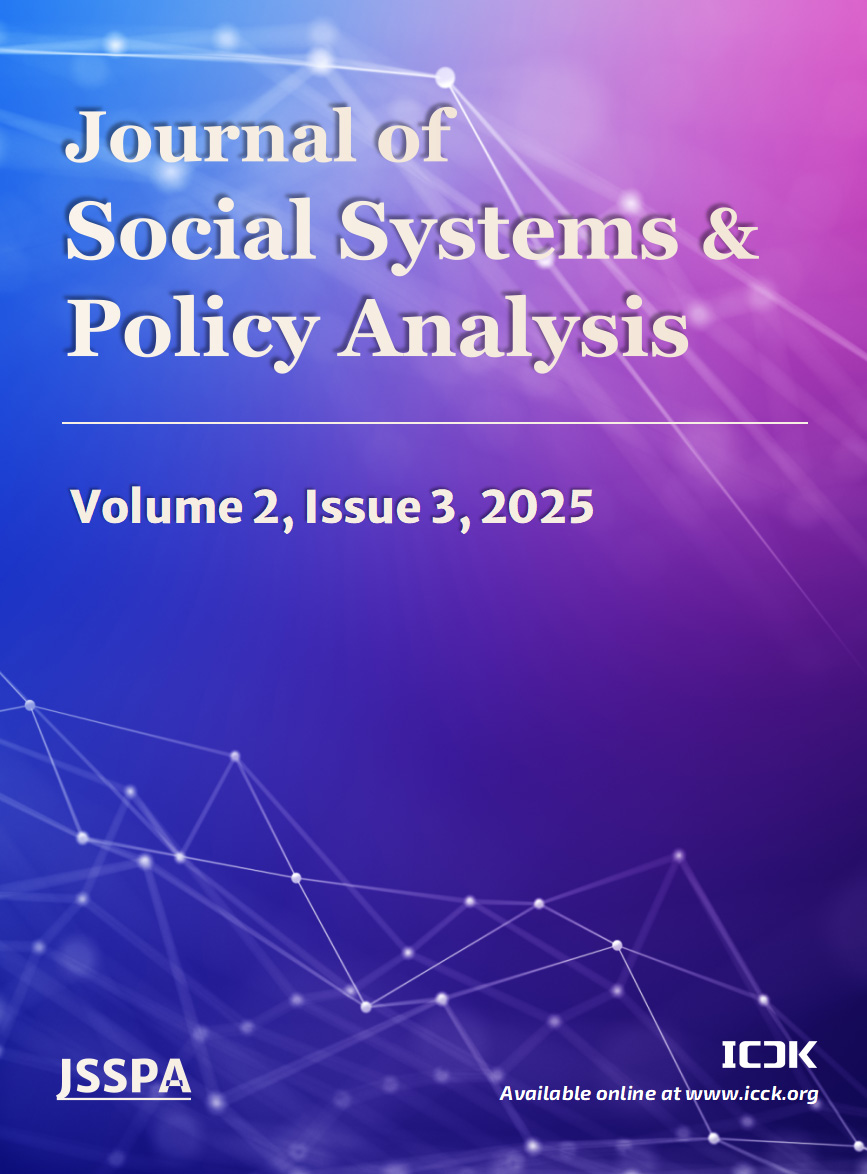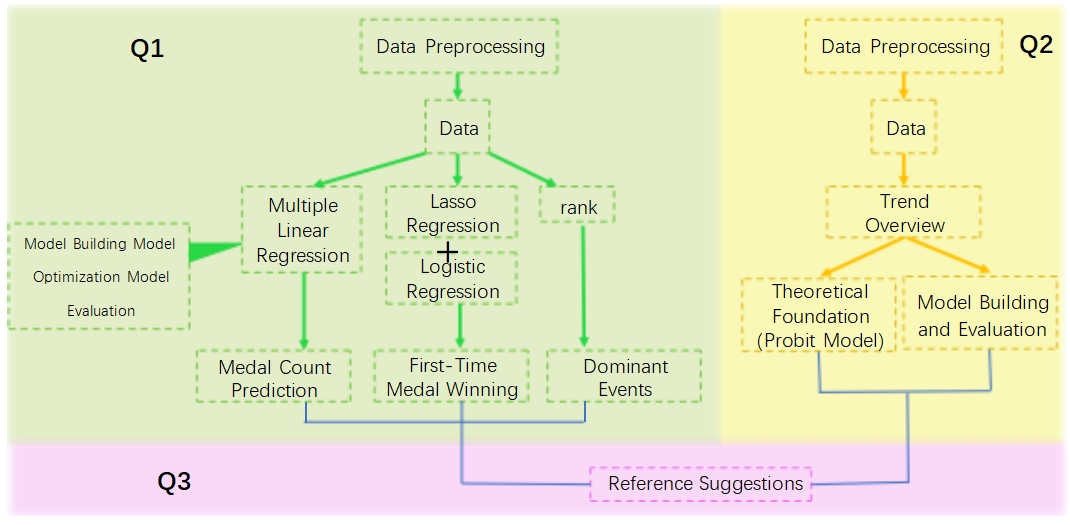Abstract
In Olympic competitions, the dynamic changes in the medal standings are influenced by a variety of factors. We predict the medal distribution for the 2028 Los Angeles Summer Olympics by analyzing historical data. In Task 1.1, we formulated predictive models for the overall medal count, as well as the individual counts for gold, silver, and bronze medals. These models integrated lagged variables and employed multivariate linear regression to ascertain the weightings of various indicators, thereby enabling the projection of the 2028 Olympic Games' medal table. The United States was projected to secure the top position with a total of 145 medals, including 50 gold medals. In Task 1.2, we deployed an integrated model that combined the Lasso regression and logistic regression techniques to calculate the indicator weightings, which were then used to predict the likelihood of certain nations achieving their inaugural gold medal, such as Montenegro in the water polo event. In Task 1.3, we conducted an in-depth analysis of the impact of dominant sports and the host country effect on the medal standings, quantifying their respective influences. The final aspect of our methodology involved visualizing the parameters derived from both the training and validation phases of our models. In Task 2, our primary investigation was to determine whether the presence of a Great Coach influences the likelihood of winning awards. We innovatively incorporated priors into the ordered Probit model, updating the posteriors in real-time and employing the Gibbs sampling method to segment threshold values and examine the nonlinear relationships of the latent variables. Through the analysis of two classic case studies, we concluded that at a 95% confidence level (with significance p < 0.1), the Great Coach index exceeds 1 for all cases, indicating a significant effect. Additionally, we visualized the weight of each parameter. Finally, a one-page memo with suggestions for country Olympic committees is also produced to help them formulate guidelines aimed at advancing the development of the Olympic Games for 'Faster, Higher, Stronger-Together'.
Keywords
multiple linear regression
bayesian ordered probit model
LASSO-Logistic regression
host country effect
gibbs sampling
Data Availability Statement
Data will be made available on request.
Funding
This work was supported without any funding.
Conflicts of Interest
The authors declare no conflicts of interest.
Ethical Approval and Consent to Participate
Not applicable.
Cite This Article
APA Style
Zhu, Y., Wang, C., & Qin, L. (2025). Medal Prediction LASSO-Logistic and Bayesian Probit Models. Journal of Social Systems and Policy Analysis, 2(3), 133–148. https://doi.org/10.62762/JSSPA.2025.975234
Publisher's Note
ICCK stays neutral with regard to jurisdictional claims in published maps and institutional affiliations.
Rights and Permissions
Institute of Central Computation and Knowledge (ICCK) or its licensor (e.g. a society or other partner) holds exclusive rights to this article under a publishing agreement with the author(s) or other rightsholder(s); author self-archiving of the accepted manuscript version of this article is solely governed by the terms of such publishing agreement and applicable law.


 Submit Manuscript
Edit a Special Issue
Submit Manuscript
Edit a Special Issue

